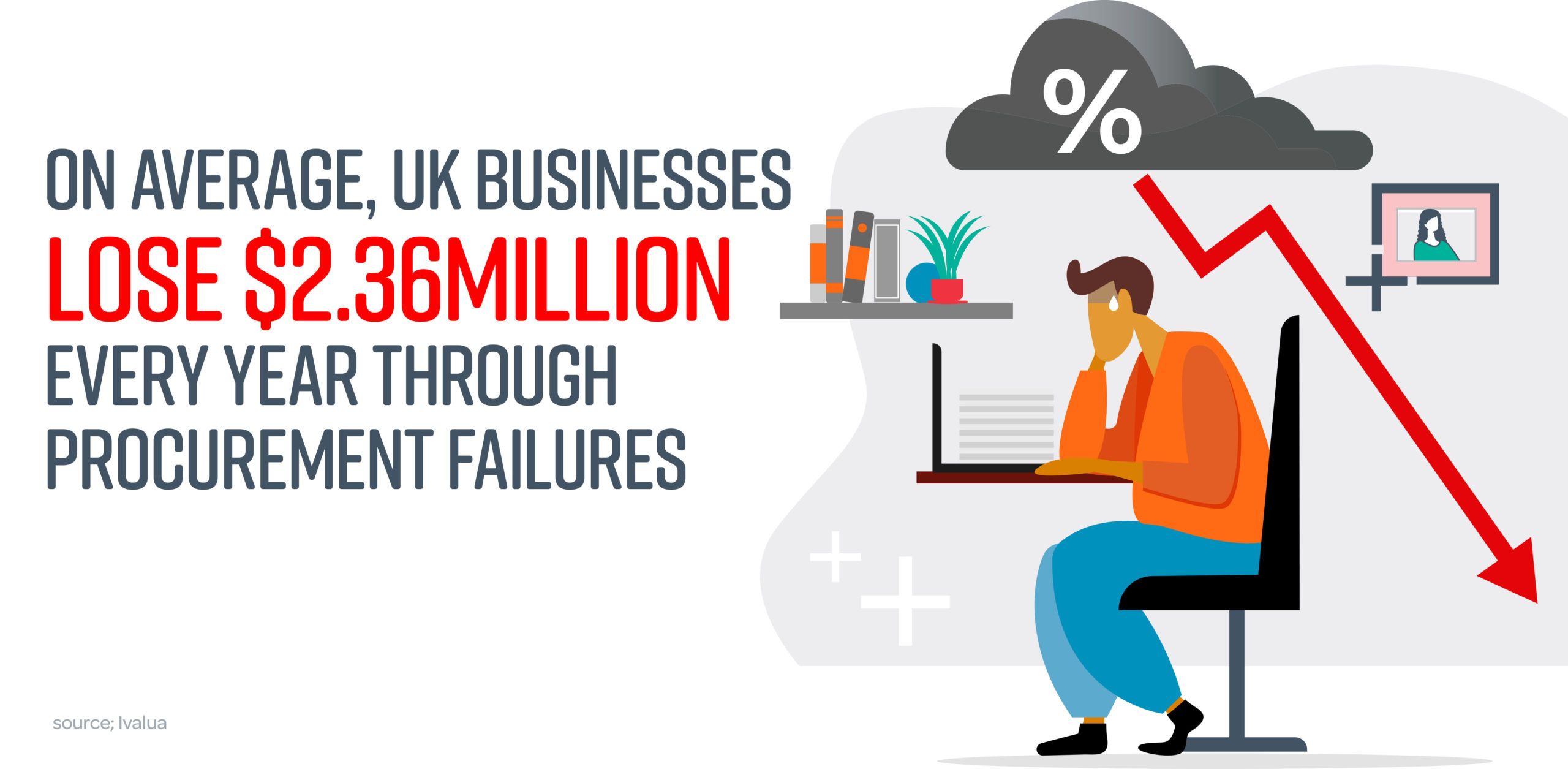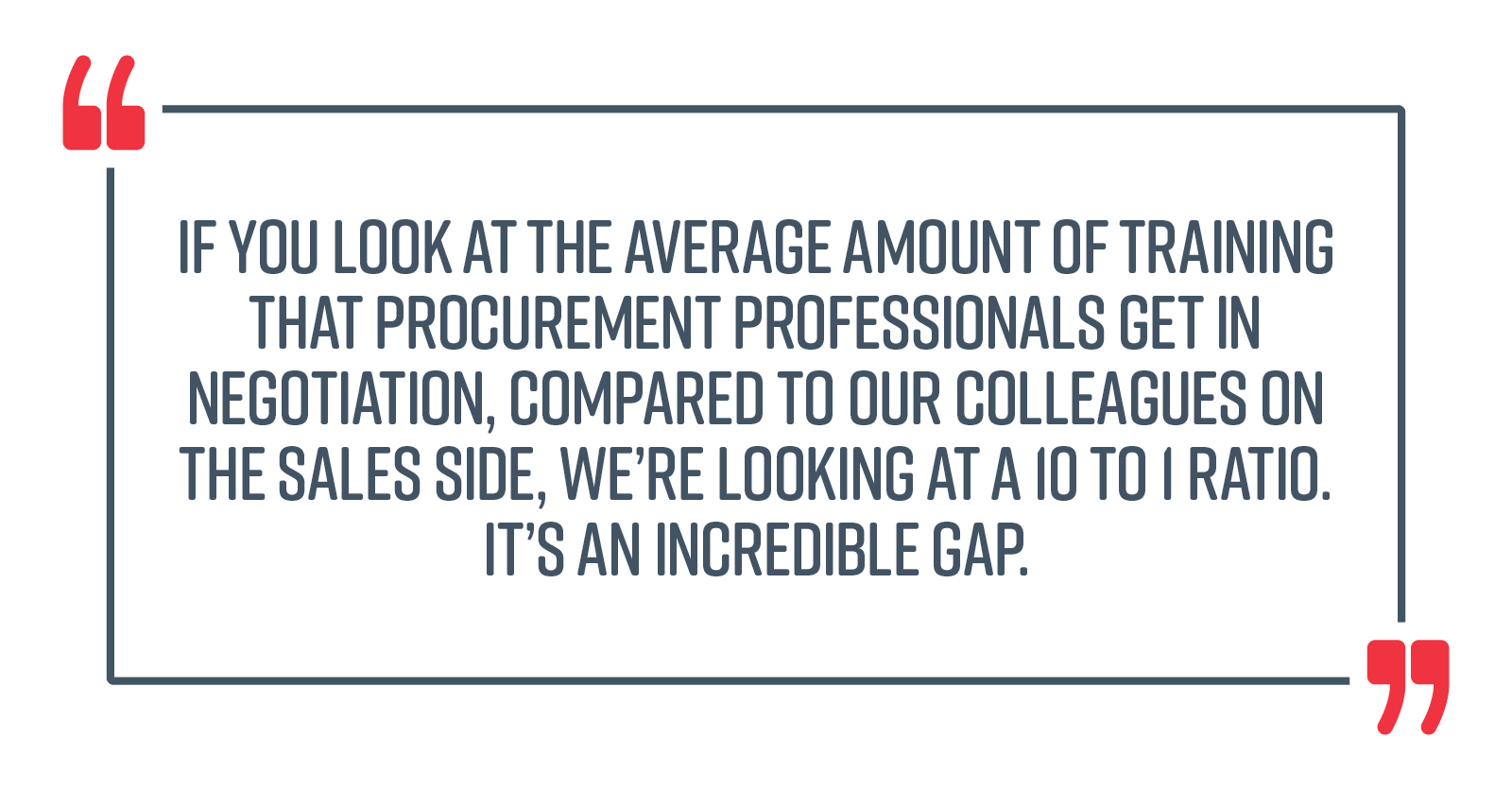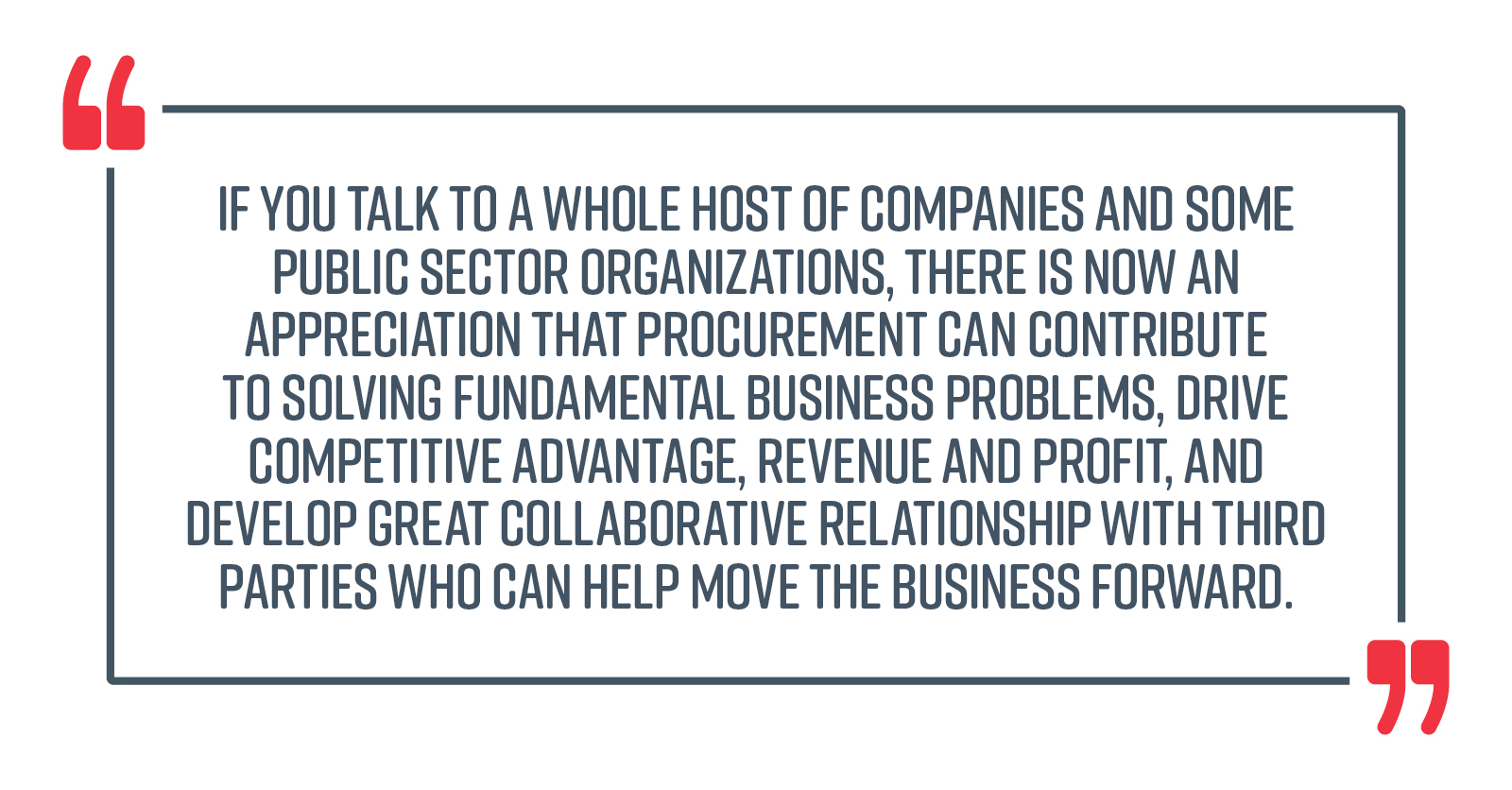Tales of ‘Bad Buying’ from one of the UK’s leading experts in public and private sector procurement performance improvement, Peter Smith.
Of course, every company buys things, whether that’s raw materials, services or even people. To be fair, many do this really well. Some organize themselves so buying is quite a strategic operation. For others it’s still reactive and tactical. And many get it very wrong.
Take the recent story of the UK Government preparing for Brexit and issuing a ferry contract to a company that had no boats.
And what about when hundreds of KFC outlets had to close because they had run out of chicken. Can you believe that?
Then consider the infamous Berlin Brandenburg Airport, due to open in 2012 at a cost of 2.8 billion Euros. It has only just opened… nine years late! And people put the cost at over 10 billion Euros. Worse still, it opened in the middle of a pandemic.
But why and how do organizations get it so wrong?

Understand What You’re Buying
Understanding what you’re trying to buy, and why, is a great starting point. It sounds obvious but isn’t always done. We talk a lot in procurement about getting the business requirements right, and organizations need to do better to define these at the outset.
Take big Government contracts. What are you trying to achieve when you outsource? Better service? A keener price? If you don’t think about that, it’s easy to buy something that doesn’t meet your needs.
Competence and Skills
Frankly, some people simply don’t know what they’re doing. They don’t have the competence, skills, training, or experience. This can apply to procurement professionals themselves, but very often others in the business are doing the procurement and are not professionally trained or qualified.
To be fair, few problems can be pinned purely on a procurement manager or director. Certainly, there are some where the procurement team were involved. But in many cases, multiple parties should bear some of the responsibility.
In my book, there are, perhaps, a hundred case studies with people outside procurement involved in 80% of them. And in many cases leading on it. Those outside procurement are almost always involved at the specification stage, in supplier and contract discussions and with post-contract management. You can put a really good contract in place. You could do a brilliant procurement job, but if you mess up on the contract management, you’ll get a bad result.
Training
We know that organizations and people need to be good at negotiation and to know what they’re doing before we let them loose on the supplier. But if you look at the average amount of training that procurement professionals get in negotiation, compared to our colleagues on the sales side, we’re looking at a 10 to 1 in ratio. It’s an incredible gap. So, if we’re talking about buying, we have to involve other functions in the organization.

Understand the Market
I started my procurement life at Mars Confectionery, who were big buyers of commodities, like cocoa, vegetable oil, dairy products and so on. I joined Mars not long after Rowntree’s lost more than their total annual profit through their speculation on the cocoa market. Commodity markets can go badly wrong.
The public sector sometimes assumes that a market will always be there. This comes right from the political level, with the naïve view that if you put something out to tender, the wonderful private sector will mystically find some way of meeting our needs. The probation service is an interesting example, where they had well-intentioned ideas about how to run the service differently and put it all out to the market. Four or five years later the whole thing had collapsed and they were back in-house, because no market was there. They assumed that somebody, probably Capita or Serco, would find a way of delivering this amazing new service, despite having no experience at all.
Believing the Supplier
A chapter in ‘Bad Buying’ called ‘Believing the Supplier’ outlines where people swallowed various lines from the supplier and got caught out. That can be as simple as the software provider who tells you, “Yes, of course our software can do that”. And then you install it and find that it doesn’t. To avoid that, pilot new programs. Test stuff, before you buy it. Take references. When a supplier says it can do something, find out whether it has done it before. And get that confirmed.
Public Sector Issues
Quite honestly, some fundamental issues in the public sector go way beyond procurement, in terms of how money is spent. For example, the Civil Service measures your power and grade, and therefore your pay, by how many people work for you and the size of your budget. And to some extent, as a senior person with a big software development project, why wouldn’t you like that to cost a billion rather than a hundred million? Because if it’s a billion, you probably get promoted, have a bigger team and more exposure to ministers. That’s good for your career. And if you say it’s a hundred million and then you overspend, you will be in some trouble. So, it’s better to say it’s a billion – and you will probably still overspend anyway!
Conflicts of Interest
I was quite impressed with the initiative shown in this NHS story – unfortunately, not with good intent! A building services manager, not a procurement professional, was letting a contract. He did the tender properly, with evaluation criteria, and asked suppliers to bid on a number of jobs, each with different weightings. A company won, fair and square but they discovered it was actually run by the manager’s brother-in-law.
The trick was that a very high weighting had been allocated for certain pieces of work and the brother-in-law had bid very low on these and scored brilliantly on the evaluation. But afterwards, it became clear that those pieces of work were hardly ever required. . So the brother-in-law was able to charge high prices on the jobs that were actually required, but had been given a low weighting in the evaluation model.
The manager was fired, quite rightly. And the NHS wanted to prosecute. But the police said the policy statements weren’t clear enough to gain a conviction. It was a clever way of fiddling the end result of the tender process and a reminder of the perils of conflicts of interest.
Understanding Procurement
Do executive teams, senior civil servants, senior individuals and private companies understand procurement?
In many cases, the simple answer is no. But in truth, procurement functions and the best CPO’s have made much progress in the last 20 years. If you talk to a whole host of companies and some public sector organizations, there is now an appreciation that procurement can contribute to solving fundamental business problems, drive competitive advantage, revenue and profit, and develop great collaborative relationships with third parties who can help move the business forward. But understanding, at senior levels, is not nearly as good as it should be.

To be controversial, this is where the Chartered Institute of Procurement and Supply (CIPS) has failed to some extent. And you could say I’m partially to blame for that as I am a past President of CIPS. We’ve built ourselves as a profession, but the tendency is to put a wall around us that says, ‘Keep out – if you haven’t got the CIPS qualification, you shouldn’t be doing this. Pass things over to us and we’ll do our magic procurement stuff and issue a jolly good contract.’ The danger is that senior business people see us as separate and almost divorced from the core parts of the business.
Putting it Right
Look on procurement as an organizational capability, not a functional capability. In my last chapter, having told all the terrible stories, I give ten suggestions for making things better. Many will seem obvious to procurement people. But I felt strongest about the one around organizational capability. It does not just concern the 20 or 200 people in procurement, but involves educating your senior managers, budget holders, specifiers and contract managers; because if they all understand what we’re trying to do with suppliers and contracts, then you stand a whole lot better chance of avoiding bad buying.
Written by Peter Smith, Managing Director of Procurement Excellence Ltd, Fellow and past President of CIPS, and author of the book ‘Bad Buying’, published through Penguin Business.

